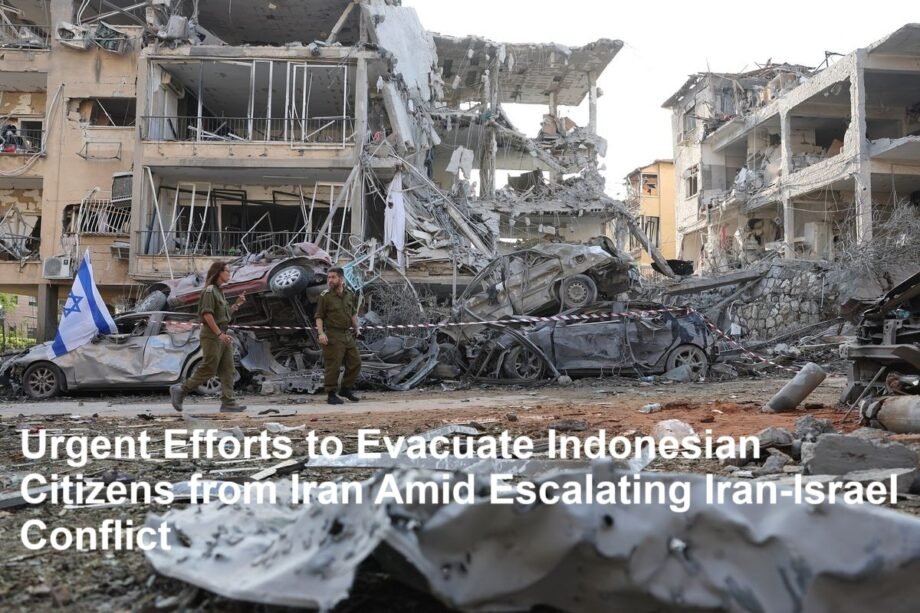The ongoing conflict between Iran and Israel has sparked significant international concern, impacting not only the regional stability of the Middle East but also the safety of foreign nationals residing in the area, including Indonesian citizens. In response to the escalating tensions and potential security threats, urgent efforts are underway to evacuate Indonesian nationals from Iran to ensure their safety and well-being. This situation highlights the serious humanitarian challenges posed by geopolitical conflict and the responsibility of governments to protect their citizens abroad.
Background of the Iran-Israel Conflict
The conflict between Iran and Israel stems from longstanding political, territorial, and ideological disputes. In recent months, the situation has escalated with increased military activities, cyber-attacks, and proxy confrontations. The rising instability has created a precarious environment for all residents and expatriates in the region, prompting international governments to reassess the risks faced by their citizens.
The Situation of Indonesian Citizens in Iran
Indonesia, home to one of the largest Muslim populations globally, maintains diplomatic and cultural ties with Iran. A number of Indonesian nationals are living, studying, or working in Iran. As the conflict intensifies, concerns over their safety have grown. The Indonesian government has actively monitored the situation to provide timely assistance and guidance to its citizens.
Government Response and Evacuation Efforts
In light of the ongoing risks, the Indonesian Ministry of Foreign Affairs, through its embassy in Tehran and regional diplomatic missions, has launched evacuation initiatives. These efforts include:
- Communication and Information Dissemination: Ensuring Indonesian citizens receive clear, accurate, and timely updates about the security situation in Iran and available evacuation plans.
- Coordination with Host and Regional Governments: Collaborating with Iranian authorities and neighboring countries to facilitate safe transit routes and temporary shelter arrangements.
- Organizing Evacuation Flights and Land Transport: Arranging for special flights and secure land transportation for Indonesian nationals willing or needing to leave Iran urgently.
- Assistance for Vulnerable Groups: Prioritizing evacuation support for families, students, and those with health or mobility challenges.
These coordinated efforts reflect Indonesia’s commitment to safeguarding its citizens in volatile international contexts.
The Impact of the Conflict on Regional Safety and Diplomacy
The Iran-Israel conflict not only threatens regional peace but also affects diplomatic relations globally. Countries like Indonesia, which maintain balanced ties with multiple Middle Eastern states, are navigating complex diplomatic waters. The government’s proactive measures underscore the importance of international cooperation and crisis management to mitigate humanitarian risks.
Broader Implications for Indonesian Overseas Communities
The unfolding crisis in Iran serves as a reminder for Indonesian overseas communities about the importance of staying informed and prepared for emergencies. The Ministry of Foreign Affairs encourages Indonesians abroad to register with their nearest embassy, follow safety protocols, and maintain contact with family members and official channels.
Conclusion
The escalating conflict between Iran and Israel has necessitated immediate and decisive actions to protect Indonesian citizens residing in Iran. Through efficient evacuation operations and continuous diplomatic engagement, the Indonesian government strives to ensure the safety and security of its nationals. This situation highlights the critical role of international diplomacy and crisis response in safeguarding human lives amid geopolitical turmoil.









